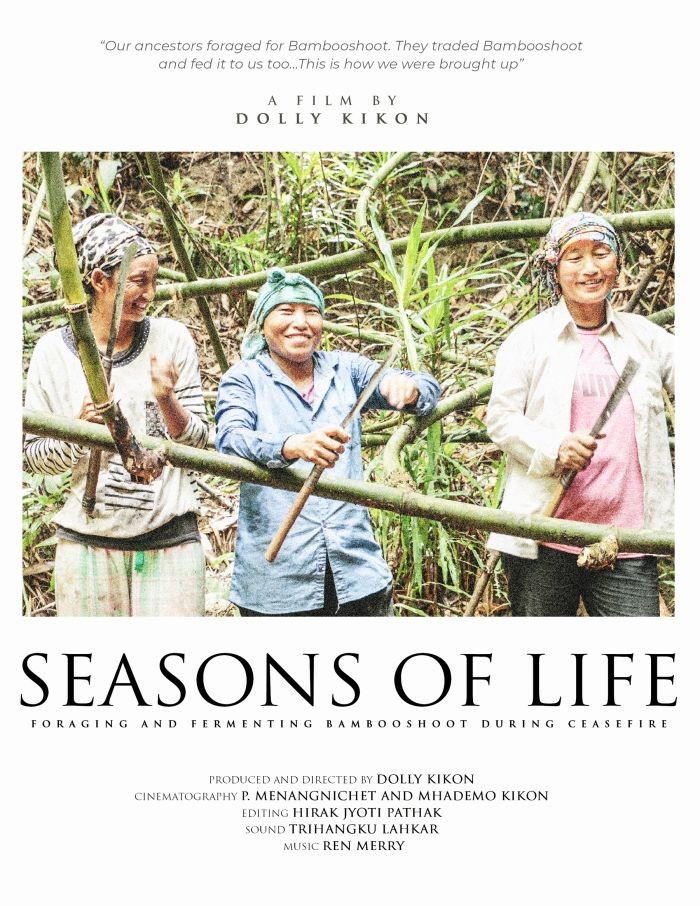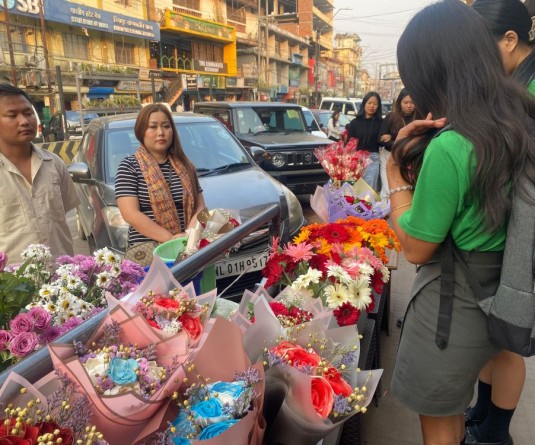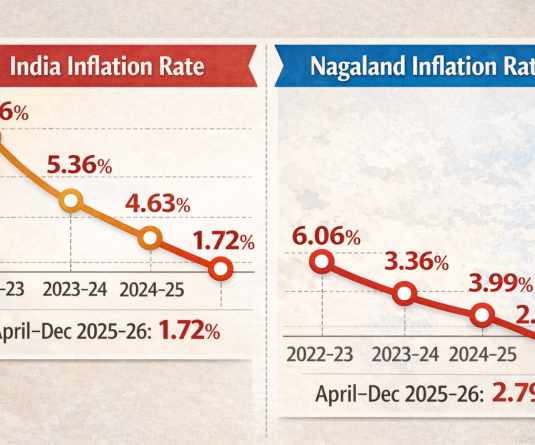‘Seasons of Life: Foraging and Fermenting Bambooshoot during Ceasefire,’ the directorial debut on food cultures of Nagaland by Dolly Kikon focuses on the everyday life of Naga women who forage for bambooshoot.

Vishü Rita Krocha
Kohima | September 3
‘Seasons of Life: Foraging and Fermenting Bambooshoot during Ceasefire,’ the directorial debut on food cultures of Nagaland by Dolly Kikon has been selected for the 2021 Yucatan Congress. It is among 21 selected films from across the world for the ‘Indigenous and Ethnographic Film Exhibition.’
On the film being selected, Dolly Kikon expressed, “I feel moved to see Seasons of Life on the list along with other amazing documentary films. I am especially thrilled about this entry because it is an international indigenous congress that takes place once every 5 years.”
In an exclusive interview, she told The Morung Express that, “I always believed that experiences of indigenous communities and our stories matter.” However, pointing to the urgency for the Naga people to come together, she emphasized that “the loss and dispossession of land, and increasing inequality is made worse with climate change.”
In this regard, she asserted that “unless we are able to draw on the wisdom of our ancestors and see the importance of our practices, we will be a lost people.” As an anthropologist, she expressed that, “this is my small contribution towards that conversation about a sustainable future.”
‘Seasons of Life,’ she further highlighted, “focuses on the everyday life of Naga women who forage for bambooshoot. It is a hard life, and what I wanted to do was connect our culture and food to the land.” Stating that we must respect those who grow food and feed us, she went on to say that “we must know where our food comes from. It is not enough to say “I love Naga food” and not be willing to do the hard job of seeing the challenges of our people in the villages.”
She strongly felt that “the love for Naga food like fermented bambooshoot needs to also include respect, and a commitment to engage with difficult processes we are grappling with.” Citing an instance in this regard, she pointed to important questions like- “how do we think about monocropping, or turning Nagaland into a palm oil plantation state? What will happen to communities who stop growing food to feed themselves?”
Kikon however is hopeful that these conversations are taking place among many indigenous communities, including the Naga people.
Dolly Kikon is an anthropologist who teaches at the University of Melbourne in Australia and her work focuses on the political economy of extractive resources, migration, development initiatives, gender relations, food cultures, and human rights in India. She is the author of two books ‘Leaving the Land: Indigenous Migration and Affective Labour in India’ and ‘Living with Oil and Coal: Resource Politics and Militarization in Northeast India.’
One of the significant highlights of ‘Seasons of Life’ is the ceasefire period that has coincided with outmigration of youth from villages across the Naga ancestral domain. They carry with them the poignant memories of home, which includes seasonal food like fermented bambooshoot.





